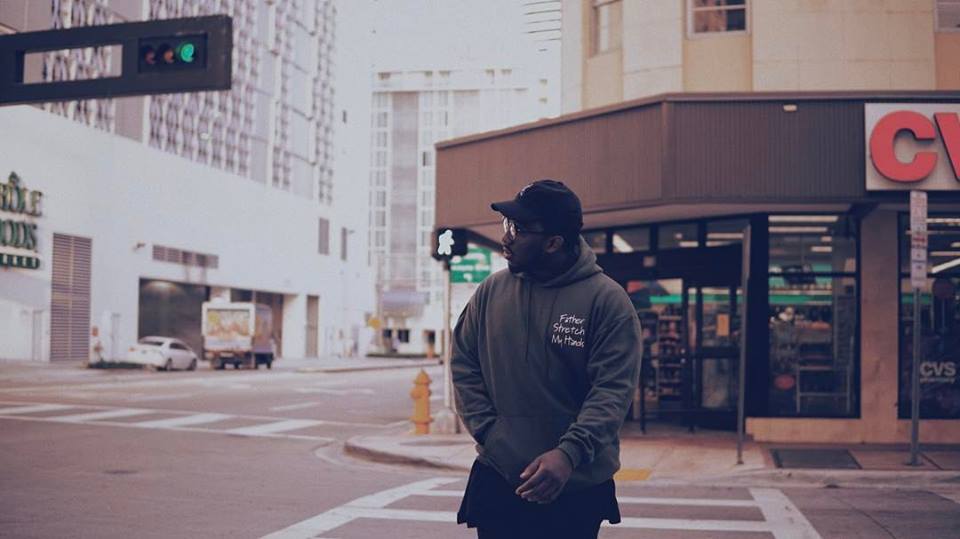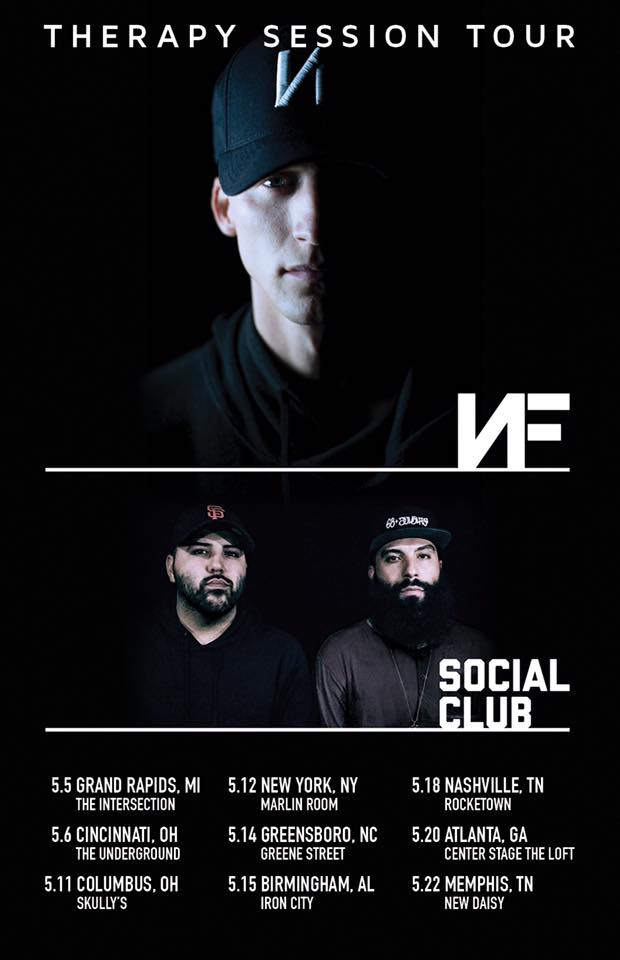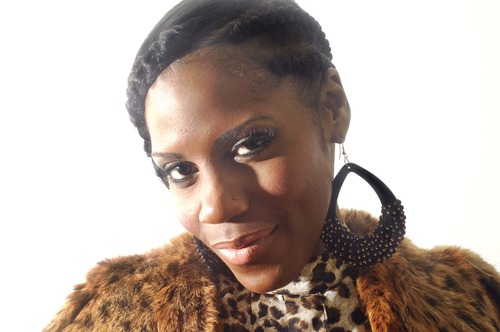There has been a lot of dialogue in recent months and years about the #CHH industry, with a lot centered around the careers and success of leading industry figures like Lecrae, NF, Andy Mineo, KB, and others. This article is being written from a promoter’s perspective with a primary focus on the audience growth, that impacts concert attendance, or lack thereof from Lecrae and NF. This article talks about lessons learned for up & coming Christian rap artists, CHH artists, hip hop artists who are devout Christians, etc. and this article will use one of these terms periodically to cover all of these category of artists.
I am Dante Crockett and I am the principal owner of Fearless Entertainment which has promoted more than 40 CHH, spoken word, and gospel music events since 2010. These events have ranged from 3K+ attendees for a Reach Records tour to a couple of hundred at a filled-to-capacity mainstream venue for a Christon Gray show and everything in between. I also produce an online radio show with smartphone apps and on podcast with regular appearances in the top 50 to 100 for all music podcasts in iTunes. Fearless Entertainment has put in many hours and invested much funds into promoting events over the years and wants to see growth in this music scene. I enjoy different kinds of music and I believe that Christians artists are not required to make explicitly gospel music but are required to make music that doesn’t dishonor God. This editorial hopes to add some nuance to the conversations that have taken place with the ultimate goal of encouraging the artist community to maximize their audience for their message and keep the influence of this music as high as possible.
This is part 2 of a 3-part series. We recommend that you read each part in full to develop a full perspective. As with anything, not all lessons apply to all people but let’s please learn from one another as there is wisdom on things to do and things not to do from observing others.
Part 2 of this series will cover the impact that supporting mainstream artists has had on support from a Christian fanbase. Part 3 will highlight a perspective on the biggest and most impactful issues in the CHH scene; race and social justice.
Lessons Learned #2
2) Open support of mainstream artists with profane lyrics will limit support from those who otherwise see your music as a solution to the problem of profane rap music that does not honor God. It is confusing for some fans to have an artist providing you a God-honoring solution endorsing what the fan sees as a problem.
Solution & Problem
For many in the Christian community, Lecrae & the rest of 116 were the solutions to a big problem. The problem for many was a love for rap music and hip hop culture where a significant portion mainstream music unfortunately was very profane and dishonoring to God. Lecrae & 116 expanded on what the Cross Movement, Tunnel Rats and Gospel Gangstaz started in a developing a broad national reach for high production quality, high artistry, legitimate rap music, while also honoring God and/or exalting Christ. They were unique in having high artistry music AND being explicit about claiming Christ and seeking to live for Him. They were different.
When Lecrae and some of his artists/supporters openly support music of artists that is explicit or profane, that erodes the support of some followers. The explanations from artists who do this have ranged from (1) the art coming from God’s image- bearers is God-honoring in beauty despite the profane/explicit lyrical content to (2) establishing relationships with mainstream artists through doing and supporting music being a way to show Jesus love to those guys. Christian artists in multiple genre’s have collaborated with mainstream artists whose music is consistently profane supposedly to give the gospel a greater reach and introduce the gospel or positive message to a wider audience. What is also is happening is that for the Christian artist, they are introducing their supporters to the mainstream artist or co-signing the artist to their supporters. There has been a lot of dialogue and articles on this topic and this article isn’t looking to solve that debate. What is true though from an audience reach perspective is that a Christian artist will lose some support from the “church” audience that was part of their core or for a new artist, you can limit new supporters, if you regularly promote or co-sign mainstream artists with profane content. The trust of the youth leader, the young adult ministry lead, the parent, or the conscientious adult is partially dependent on this. That trust is at great risk when artist who they saw as part, or for new artists a potential part, of the “solution” supports and/or collaborates with an artist whose current music is part of the “problem.”
Another smaller issue that contributed to reduced support for Lecrae was him asking his followers on social media to attend mainstream concerts and festivals where he was performing. There was some tone-deaf-ness here as when his crowd was at its height, there were families attending, fathers with daughters, mothers with sons, young adult outings, people seeking deliverance and those who may have had deliverance from drugs and alcohol-related issues. The environment at a mainstream hip hop festival with the high level of smoking weed, popping pills, getting drunk, objectification of women by other artists on the lineup is where a large portion of his audience would not want to be intentionally. For those who can go to such an event and engage with fellow attendees and not get caught up in the culture at the events, that is cool but for others, their cousin or uncle who gets high goes to that event and it is odd that Lecrae would ask them to go also.
I have had dialogue with a brother who has taken boys from a youth home to just about every CHH event that comes through town over the last 8 or so years. He mentioned attending a concert at a mainstream venue with an artist considered CHH by many where the amount of weed smoking and alcohol usage was not appropriate when they are dealing with young men who are getting over difficult history from vice-filled environments. These CHH events have been a part of his solution in showing these young men a great hip hop environment without the vices and concerts from this particular artist may no longer be an option.
Lessons learned – This depends. If you are an artist who cares about keeping your audience with a strong Christian base, you should think about keeping the trust of adults who use your music and events to expose the youth and young adults to a God-honoring option. Think about your audience. If you are an artist who doesn’t care about your Christian base, expect less support and hopefully you get the mainstream audience that you are looking for.
If you are invited to a youth conference where you are the musical guest for 1000 teenagers, and your pre-show musical inspiration is artists talking getting/giving h**d, popping pills, getting drunk, selling drugs, etc., think about if that is worth losing that support if hypothetically the leaders of that conference wanted someone more inspired in a Spiritual way even if it is choosing an RMG playlist for your inspiration instead of a mainstream popular hip hop artist playlist. Again, not everyone cares about this but enough do that it contributed to some erosion in Lecrae’s audience before the issues with race. Being the salt in the earth in the music world goes beyond proclaiming Christ and not cursing, there are plenty of mainstream artists with very profane music who proclaim Christ and there are artists who are not Christian who don’t curse in their music.
More than Race
The Christian Rapper Label issue(part I) and Solution vs. Problem(part II) issue were present before the bigger race-related issues and made it tougher to get people to buy tickets to shows. When helping to promote the Anomaly tour in Detroit, the market didn’t respond in the same way as for the Unashamed tour even with the great album sales of the Anomaly album. In particular, the response from churches who were a large part of the 2012 audiences started to shrink.
Considerations from NF
NF grew his audience with high-quality music that resonated well with his fans and performed on the Christian music festival circuit earlier in his career. NF had enough fanbase driven by his music quality and early career shows that his three headlining tours have been at mainstream club venues which is different than the Reach Records artists where their early tours were primarily in church venues with regular draw from large young adult and youth group ticket sales. Later this year, NF will join a summer amphitheater tour headlined by mainstream artists Logic. It is a good opportunity for an artist, who is Christian, to display their artistry in mainstream settings. The challenge is managing the opportunity to reach a broader audience with how it impacts the current fanbase. The environment at many mainstream concerts is heavy with people getting high on marijuana, lots of drinking, and lots of pill popping. For some in his fanbase, their path to sanctification and repentance has them overcoming, or working to overcome, drug addiction, alcohol abuse, etc. As it relates to this article series, given NF’s fanbase more recently has been developed through mainstream club touring, his draw may have less impact being on a mainstream tour versus artists whose fanbase was developed in more church events. Time will tell how much of his touring fanbase
joins the mainstream tour given the environment.
– Dante Crockett





